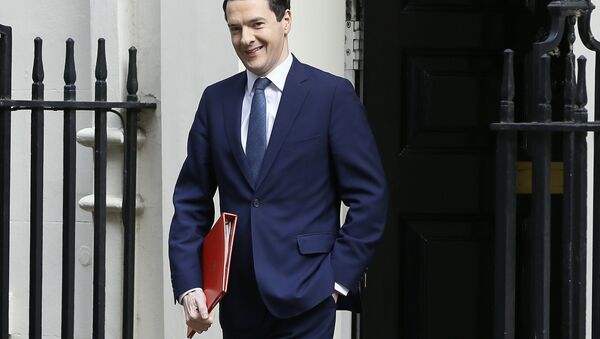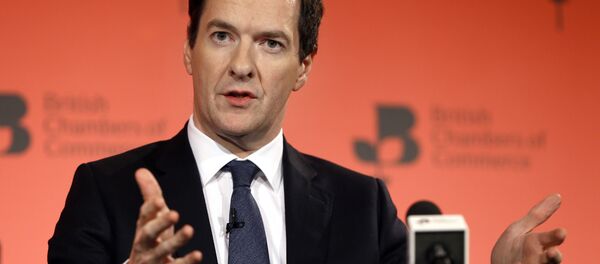There was uproar when former UK Chancellor George Osborne applied for and was appointed to the editorship of the hugely influential London Evening Standard, while also remaining an MP. After much pressure, he has now resigned as an MP, however, his colleagues have poured scorn over the body that is supposed to oversee MPs' conflicts of interests.
Ministers’ and officials’ conflicts of interest must be managed better. Read our #PublicAccountability #ACoBA report https://t.co/PbAzFzVCvu pic.twitter.com/c6I4ZZ6DTk
— PACAC Committee (@CommonsPACAC) 24 April 2017
MPs on the Public Administration and Constitutional Affairs Committee have branded the Advisory Committee on Business Appointments (ACoBA) as "toothless" in a damning new report, which has revealed "gaps in ACoBA's monitoring process with insufficient attention paid to the principles that should govern business appointments, or the values which it should be seeking to promote."
The former chancellor applied for the role of editor of the Standard, saying: "I've always known that the Evening Standard is an institution that plays a huge part in the life of the city and its people. Now it is a great honor that I can play a part as leader of the editorial team making the Evening Standard the definitive voice of the world's most exciting city."
I won't be standing at this election. My letter to the President of the Tatton Conservative Association explains why https://t.co/wP2AhM6777
— George Osborne (@George_Osborne) 19 April 2017
'Moral Behavior'
However, critics within and outside Westminster said it was inconceivable for him to remain an MP while also editing a flagship publication and that Osborne should have referred himself to ACoBA, which ought to have blocked the appointment.
"Without greater clarity and understanding of what moral behavior is expected of public servants, the culture has become established in public life, that individuals are entitled to capitalize on their public sector experience when they move into the private sector without clear boundaries," said Bernard Jenkin MP, chair of the Public Administration and Constitutional Affairs Committee.
"This is the 'new normal' and public confidence in the effectiveness of ACoBA's advice to former Ministers and civil servants will continue to diminish further. The Government must take steps to ensure that the ACoBA system is improved swiftly. In the long term, failure do so will lead to an even greater decline in public trust in our democracy and our Government," said Jenkin.
The committee report concluded that the Business Appointment Rules should be fundamentally changed and that a system to manage conflicts of interest needs more than just a code of rules and declarations.
"A principles-based system, if it is effectively taught by leaders and learned by everyone to be intrinsic to the public service, creates an expectation that individuals will act with integrity, and regulate their own behavior and attitudes according to those principles," the report concluded.



